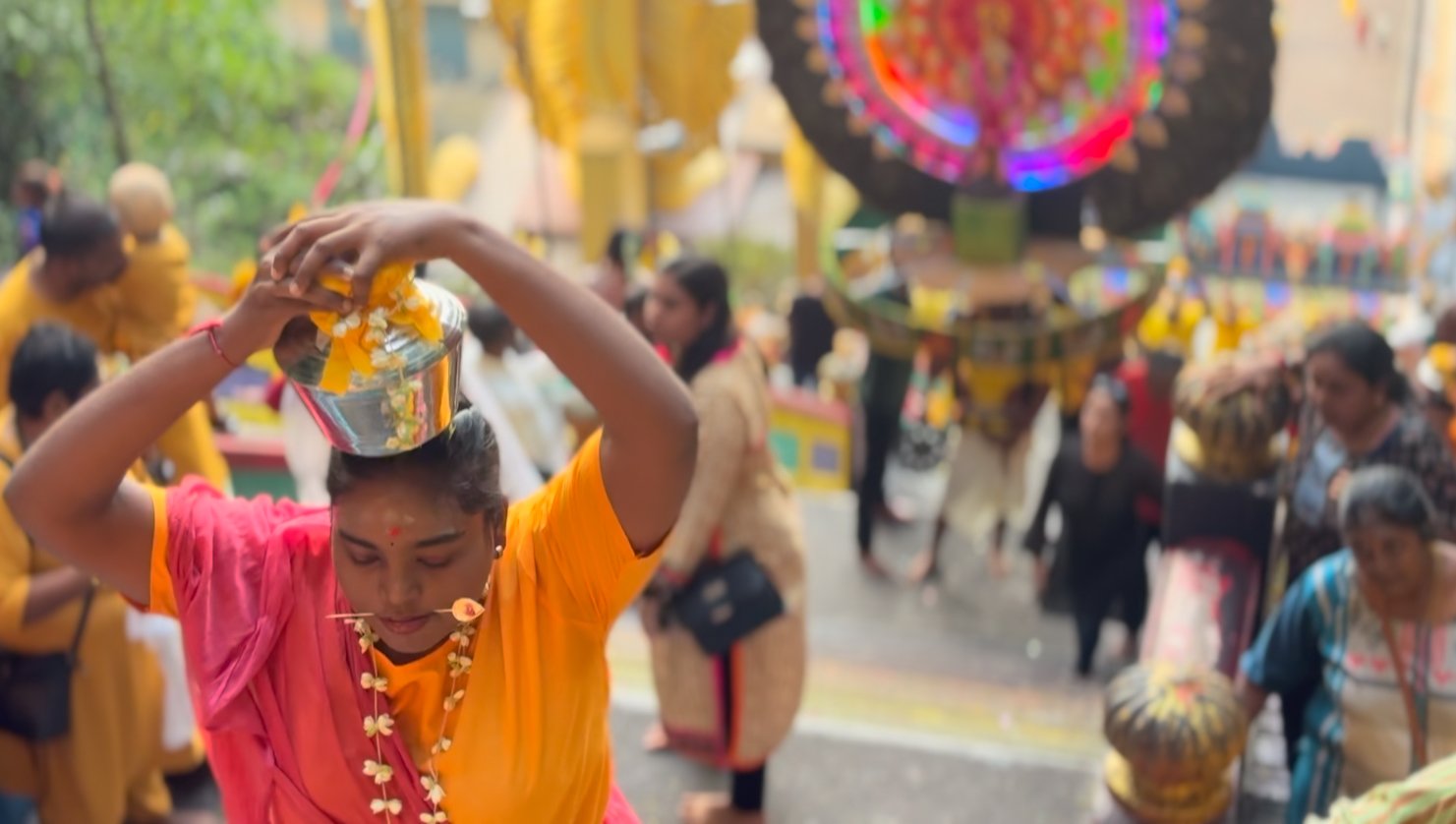Getting to the Point
This story was published in Nikkei Asia here in April 2025.
The woman passing me in a bright orange and red sari looked remarkably composed for someone who had a metal skewer going into one cheek and coming out of the other. Her poise and focus were mirrored in dozens of other pilgrims who were sporting similarly excruciating-looking piercings. Some even had metal hooks penetrating the flesh of their backs that supported huge wooden frames towering over their heads, or acted as anchors for ropes held like reins by companions. But despite such self-mutilation, none of them seemed to display any signs of distress, most instead appearing to be on another mental plane altogether. Combined with the drummers and the tides of rhythmic chanting, it made for a distinctly trance-like atmosphere.
They were celebrating the Tamil Hindu festival of Thaipusam that had kicked off at the stroke of midnight outside the Sri Maha Mariamman Temple in Kuala Lumpur. I had joined thousands of Malaysian Tamils gathered there to accompany a lavishly decorated chariot as it set out on its journey to the Batu Caves outside of the city. The chariot carried a statue of Lord Murugan, a Hindu god renowned for defeating the demon Surapadman and his acolytes when they tried to plague the world with evil. Thaipusam celebrates Lord Murugan's victory over them and is an opportunity to give thanks for everything that’s positive in life, as well as to pray for more of the same in the future.
After an all-night trek, the cave complex finally shimmered into view through the morning heat. A last challenge loomed ahead however: a climb up some 300 steps to a temple hidden in the side of a mountain. Here, priests waited to relieve the pilgrims of their kavadi, as the spiky burdens are known, before treating their wounds with ash.
At a tea stall at the bottom of the steps, I watched as a dapper middle-aged man in flowing white robes and matching bushy whiskers descended from the temple, his mission complete. Given his jaunty gait and friendly smile as he then ordered a brew, I reckoned he might put up with a couple of questions from a curious foreigner, so I went over and introduced myself.
I was immediately surprised to find out that my new acquaintance, Narendra, was a chemical engineer from Kuala Lumpur rather than the full-time mystic I had presumed, and that most of the other pilgrims were similarly normal folk. I then posed the question that had been bothering me all night: why on earth were they all inflicting such suffering on themselves in the name of a festival that was supposed to celebrate the triumph of good over evil, and thus by extension surely pleasure over pain?
Narendra gave me an obliging smile and then motioned for us to sit down on some low wooden stools next to the counter. As we sipped our sweet, milky chai, he told me that I needed to remember that Lord Murugan's epic victory had been won only after a very tough battle. This served as a telling reminder that the sustainably good things in life do not come easy, instead requiring short-term pain to unlock long-term gain. Despite already knowing this with the rational parts of our brains, our illogical human emotions all too often balk at the initial grind needed to reach the good stuff. We are instead seduced by short-term pleasures that offer the exact opposite deal - being light on the upfront costs but heavy on the negative aftereffects. The result is that we end up sacrificing our deeper, long-term happiness in the pursuit of shallow, short-lived thrills.
Narendra paused and finished off his chai, then motioned to the neighbouring stall that was selling thickly battered bhajis. This, he said, offered the perfect example - even though we know that fast food is bad for us, we are still ridiculously easily persuaded to override this knowledge by the anticipation of the mere couple of seconds of pleasure that biting into its oily crispiness will bring.
To correct such a deeply ingrained bias for immediate gratification, no matter the subsequent cost, he told me that the human brain requires a really visceral lesson. And this is where the piercings and pain of Thaipusam come in. By enduring them, the pilgrims learn to overcome their immediate urges and build mental strength. They prove to themselves that they do not have to be a slave to every desire that comes into their heads. If they can overcome the urge to escape from these burdens for a night, then subsequent emotional regulation in the face of temptation becomes child's play - so by putting on physical chains, they learn to break free of mental ones.
I smiled as Narendra’s words hit home. Despite how unfathomable the rituals had at first seemed to an outsider like me, it turned out that they were rooted in a Latin axiom that humans have aspired to for millennia: per aspera ad astra - through hardship to the stars. I was almost tempted to give the piercing a go myself now but, as Narendra had advised a step-by-step approach, I instead settled for abandoning my planned order of a bhaji to go.





